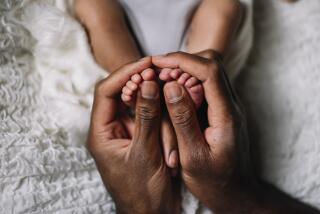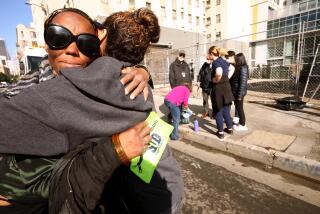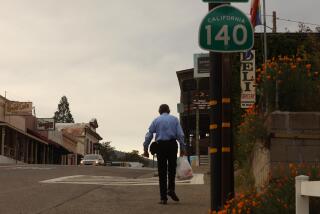For 20 Years, Texas Town’s ‘Grandma’ Has Provided a Home for Troubled Youths
- Share via
GARLAND, Tex. — No one cares much for “Grandma’s” kids. After all, they’re not really kids.
Most people 18 to 21 have jobs or are in school or the military. Grandma’s brood includes recovering drug addicts and alcoholics, unwed mothers and ex-convicts with baby faces.
The woman they call “Grandma”--Edie Lewis--has been taking in social outcasts for 20 years, sheltering and nurturing them until they are able to stand on their own feet.
“There’s places for minors. This is an age group there’s no place for,” said Lewis, who houses anywhere from half a dozen to a dozen hapless youths at a time in her brick, ranch-style home in this Dallas suburb.
Some have been on the streets for years by the time they find their way into Grandma’s fold. They come in “with chips on their shoulders the size of logs,” she said.
Most Leave Quickly
Lewis, 60, gives them not only a place to stay but money for a haircut, a new set of clothes or a ride to a job interview--whatever it takes to “help them get their heads on straight.”
In four to five months, most are gone. Some stay a year or more.
Until the death of her husband, Charlie, 18 months ago, there was enough cash on hand with his $2,800 a month in retirement funds. Now, she said, she clears $800 a month in widow’s benefits.
The $720 monthly mortgage falls behind. The house at the corner of Warren and Walnut, a six-lane highway, is almost stripped of furniture, resembling a 1960s crash pad. Two refrigerators are almost bare except for sandwich makings or a pot of beans.
“When Charlie was here, I had three refrigerators and they were always full,” said Lewis.
Struggle to Make Ends Meet
Now, she makes visits to a doughnut shop in the wee hours of the morning to get unsold doughnuts. She sometimes goes door to door collecting change. An anonymous benefactor gave her $3,700 around Christmas for back house payments.
Lewis, typically garbed in blue jeans and work shirt, her graying hair neatly combed, said she started taking in young people when she lived in Fairbanks, Alaska.
“One night I heard what I thought was a dog barking in my backyard,” she said. “I went out and found a boy lying there.”
She took him in and let him stay overnight. She found out where his parents lived and called them.
“They said, ‘We’re not interested,’ ” Lewis recalled.
As with many of her kids, his parents were alcoholics, “always fussing and fighting,” she said.
Not long after the youth left, others came. Word of mouth spread the story about the woman who would help you out in a bind.
“I was sleeping on the streets and this lady told me about Grandma’s,” said Sean, who is staying with Lewis now.
Sean, 18, had been on his own for four years and was on the verge of being jailed for sleeping in the laundry of an apartment complex, Lewis said.
Now, he’s next in line for a job as a busboy at a popular restaurant and club in Dallas. In a few months, he expects to have an apartment of his own.
Among the hundreds of young people she has known, Lewis can recall few who turned out badly.
“The real bad ones, when they come here, they take care of themselves,” she said. “They’re just looking for a place to sleep. After a day or two, they’re gone.”
Lewis has two rules: No drugs and no alcohol.
“They can stay out until 3 a.m. Adults can go out,” she said. But they soon learn that they can’t go out all night and hold down a job, she said.
Lewis says she has thought about quitting.
“When Charlie was sick and in the hospital, I said I would just wait until the group that I had left,” she said. “But I can’t say no.”
More to Read
Sign up for Essential California
The most important California stories and recommendations in your inbox every morning.
You may occasionally receive promotional content from the Los Angeles Times.













